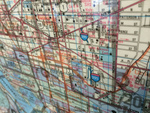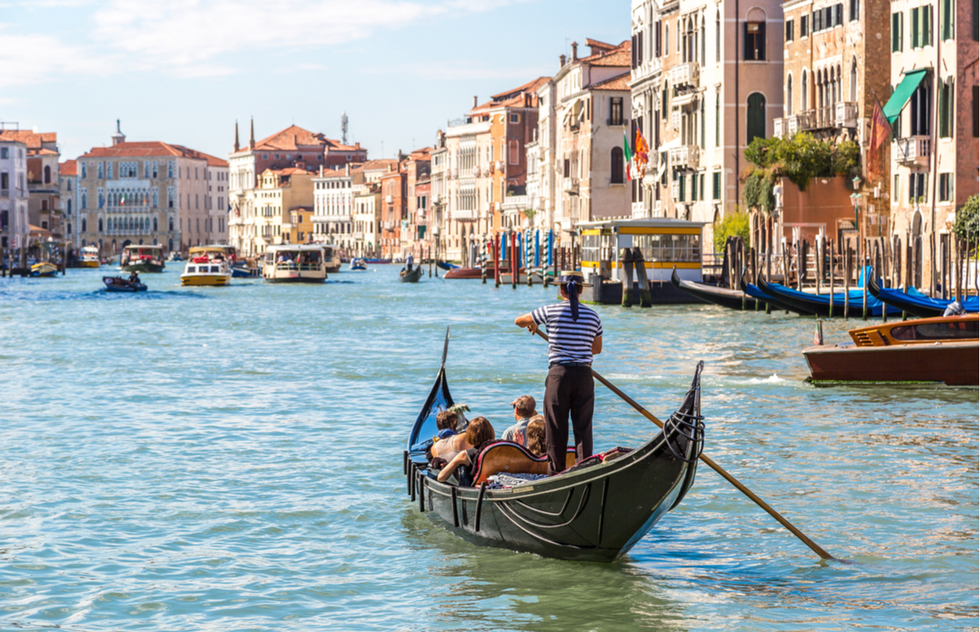On September 12, the city council of Venice, Italy, finalized the city's long-postponed plan to battle overcrowding by charging visitors an experimental entry fee in 2024. The final vote of 24-12 was met with protests.
Here's what we know so far.
Venice's entry ticket will not be required every single day in 2024.
On September 5, Venice mayor Luigi Brugnaro posted on social media that the entry fee will be in force for a total of about 30 days in 2024. After observing how those days go, the council will reassess from there.
The affected days are not expected to be consecutive. Instead, they will be spread out over school breaks, busy holiday weekends, and other moments of peak travel.
"We have decided to act and we are starting an experiment, the first in the world, to safeguard Venice after years of inaction," Brugnaro posted after the final council vote to implement the tourist tax.
The entry fee will change depending on the day.
In 2022 Venice’s councilor for tourism, Simone Venturini, predicted that the fee will slide between about €3 and €10 (US$3.25 to $10.75), with larger fees imposed on days when more people are expected.
The lowest fee has since been revised to a one-time €5 ($5.38). After that, the more tickets are requested, the higher the cost will go, although the city has not announced the threshold for higher charges.
That's right: One of the most elegant and storied civilizations in the world will soon charge for access using dynamic pricing.
Visitors will be able to pay fees digitally.
A website with translation to multiple languages, including English, will be made available for visitors to prepay access fees and obtain QR codes validating compliance.
Travelers who arrive by train or bus should be able to buy access in advance when purchasing their transportation tickets, much as other common government fees are automatically added to airfare.
Visitors who arrive without prebooking will have to pay the full €10 charge. Visitors who don't pay and are caught by an inspector will reportedly be subject to an on-the-spot fine of €50 to €300 ($54–$322.50).
Overnight guests at hotels will not need tickets.
The new system is targeted at day-trippers. Travelers who stay in one of Venice's hotels are already subject to a tourist tax, so they will be exempt from what locals are calling the new "contributo di accesso" or "ticket d'ingresso."
Also exempt: children under 15, people visiting relatives, travelers with disabilities, commuters, people who own property in Venice, and people who come to the city because they are attending a sporting event or other major ticketed event.
Tickets will never sell out.
Although Venice is implementing the measure to combat crowds, the tickets will, in fact, be unlimited in quantity. Venetian leaders simply hope that the extra charge will discourage visitors.
As long as you pay the escalated entry fee on affected days, you can still get into Venice.
"Venezia resterà sempre aperta a tutti," tweeted Brugnaro. Venice will always remain open to everyone.
If you pay.
The islands of Burano, Murano, Torcello, and the Lido are included in the entry fee.
One access fee covers Venice's islands as well as the main city. You don't have to pay again if you take a boat between them.
Tourists who spend multiple days in Venice will not be required to pay the fee daily. The charge will ony be levied again if a visitor leaves the boundaries of the city and then returns on a day when the charge is back in force.
As homes in the city are converted to short-term leisure rentals, tourists are widely said to outnumber residents in Venice. Will the new entry fee stem the stampede of tourists in any way?
I have my doubts whether the fee will work as intended (and so do some Italians, clearly), at least when it comes to American visitors. Most Americans are granted a meager number of annual vacation days, they don't have much flexibility in changing them, and Venice is on a short list of places that must be visited at least once in a lifetime.
A few extra bucks probably aren't going to convince many Americans to shift their bucket-list plans to a different day.







